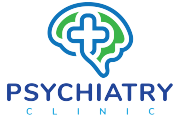What does OCD recovery feel like? Comprehensive Guide
Obsessive-Compulsive Disorder (OCD) is a mental health disorder. It is characterized by recurring thoughts and behaviors that are difficult or impossible to control, causing significant distress and interference in daily life. Recovery from OCD can be a long and challenging journey, but it is possible with proper treatment and support. So, What does OCD recovery feel like?
In this article , we will explore the various stages and experiences of OCD recovery.
Let’s explore some common experiences and emotions associated with OCD recovery.
What does OCD recovery feel like?

Man people ask what does OCD recovery feel like? Recovery from OCD can feel like a rollercoaster ride, with ups and downs along the way. It is a process of learning to manage symptoms, changing thought patterns, and developing coping strategies. Recovery may also involve facing fears and challenging beliefs that have been deeply ingrained by the disorder. Often, individuals may experience a range of emotions during the recovery journey, including:
Relief:
Many individuals with OCD experience intense feelings of relief when they finally receive an accurate diagnosis and understanding of their condition. This can validate their experiences and provide hope for improvement.
Anxiety/ Uncertainty:
As individuals begin to work towards recovery, they may experience increased anxiety and uncertainty. This is a normal part of the process as they start to challenge their OCD thoughts and behaviors.
Frustration/ Discouragement:
Recovery from OCD can be challenging and frustrating at times. It is not a linear process, and setbacks are common. This can lead to feelings of discouragement or even hopelessness. However, it’s important to remember that these setbacks do not mean failure but rather opportunities for growth.
Empowerment:
As individuals make progress in their recovery journey, they may also feel empowered by their ability to overcome challenges and manage their symptoms. This can lead to increased self-confidence and a sense of control over their life.
Proud/ Accomplished:
As individuals reach milestones and make strides in their recovery, they may experience feelings of pride and accomplishment. They have worked hard to get to where they are, and it’s important to celebrate their successes along the way.
The different stages of OCD recovery
The road to OCD recovery is not a straight path. It involves multiple stages, each with its own challenges and victories. Here are the four main stages of OCD recovery:
Awareness:
This stage involves recognizing that something is not right and seeking help. It can be difficult for individuals to acknowledge that they have a mental health disorder, but it’s an essential step towards recovery.
Acceptance:
In this stage, individuals come to terms with their diagnosis and begin to understand the impact of OCD on their life. They may also start to develop a treatment plan with the help of a therapist or healthcare professional.
Action:
This stage involves actively working towards managing symptoms and developing coping strategies. This may include therapy, medication, support groups, and self-care practices.
Maintenance:
The final stage of OCD recovery involves maintaining progress and managing symptoms over the long term. This may involve continued therapy, support from loved ones, and incorporating healthy habits into daily life.
Coping strategies for OCD recovery
In addition to seeking professional treatment, there are also several coping strategies that can help individuals in their OCD recovery journey:
Mindfulness:
Practicing mindfulness can help individuals become more aware of their thoughts and emotions without judgment. It can also aid in reducing anxiety and increasing overall well-being.
Exposure and Response Prevention (ERP):
ERP is a type of cognitive-behavioral therapy specifically designed for treating OCD. It involves gradually exposing individuals to their fears and then preventing them from engaging in compulsive behaviors.
Self-care:
Taking care of oneself is crucial for managing OCD symptoms. This can include getting enough sleep, eating well, exercising regularly, and engaging in activities that bring joy and relaxation.
Support system:
Having a strong support system can make a significant difference in an individual’s recovery journey. This can include family, friends, therapy groups, or online communities.
Treatment options for OCD recovery
There are various treatment options available for individuals with OCD, and what works best will vary from person to person. Some common treatments include:
Cognitive-behavioral therapy (CBT):
CBT is a type of psychotherapy that focuses on changing thought patterns and behaviors that contribute to OCD symptoms.
Medication:
Selective serotonin reuptake inhibitors (SSRIs) are commonly prescribed to help manage symptoms of OCD.
Brain stimulation therapies:
In some cases, brain stimulation therapies such as transcranial magnetic stimulation (TMS) or deep brain stimulation (DBS) may be used to treat severe OCD symptoms.
Conclusion
The most asked question by OCD people what does OCD recovery feel like? Recovery from OCD is a challenging but achievable process. It can feel like a rollercoaster ride with various emotions and experiences along the way. However, with proper treatment, coping strategies, and support, individuals can overcome their symptoms and lead fulfilling lives.
Remember to be patient with yourself during the recovery journey and celebrate your progress along the way. So, if you or someone you know is struggling with OCD, know that there is hope for recovery and a brighter future ahead. Keep pushing forward towards that goal of recovery!
FAQs
Frequently asked question by people.
How did I cured my OCD thoughts?
There is no one definitive way to cure OCD thoughts, as each individual’s journey towards recovery is unique. However, seeking professional help and implementing coping strategies such as therapy, medication, and self-care practices can greatly improve symptoms and manage intrusive thoughts.
Why is OCD so hard to overcome?
OCD is a complex disorder that involves both biological and environmental factors. It can be challenging to overcome because it involves changing deeply ingrained thought patterns and behaviors.
How to calm OCD thoughts?
Some techniques that may help calm OCD thoughts include practicing deep breathing, mindfulness, and ERP exercises. It is also essential to seek professional help and develop a strong support system to manage symptoms effectively.

